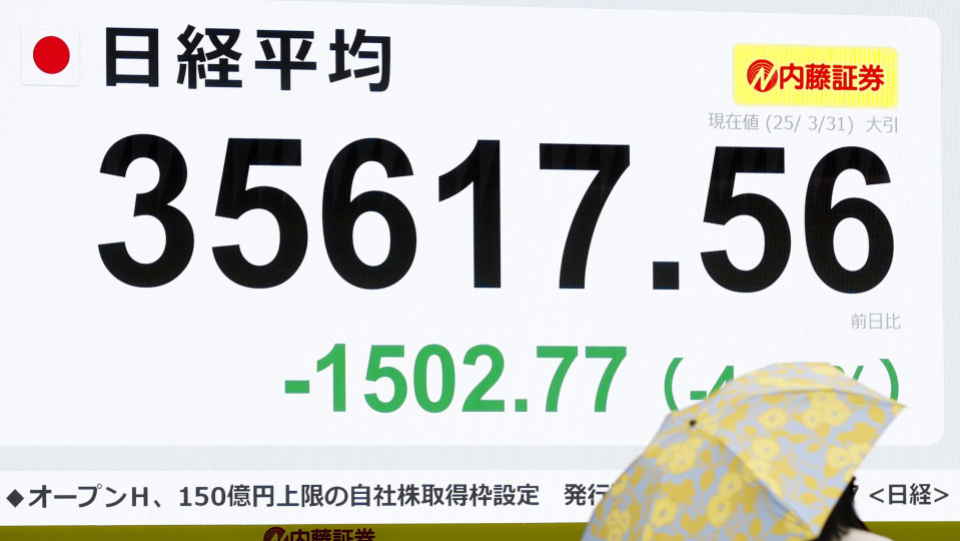Tokyo stocks experienced a significant decline on Monday, marking the final day of Japan’s 2024 fiscal year. The Nikkei index closed down 4% at a seven-month low, driven by concerns over the potential adverse effects of U.S. tariffs on the Japanese economy. The 225-issue Nikkei Stock Average fell by 1,502.77 points, or 4.05%, to 35,617.56, its lowest closing level since August 9. This represents an 11.8% decrease compared to the previous year. The broader Topix index also saw a drop, finishing 98.52 points, or 3.57%, lower at 2,658.73.
All sectors on the top-tier Prime Market ended in negative territory, with insurance, nonferrous metal, and oil and coal product issues leading the decliners. The U.S. dollar briefly weakened against the yen in Tokyo, as the yen, considered a safe-haven asset, was purchased amid fears of an economic slowdown in the United States due to President Donald Trump’s trade policies.
At 5 p.m., the dollar was valued at 149.13-15 yen compared to 149.75-85 yen in New York and 150.38-40 yen in Tokyo at 5 p.m. on Friday. The euro was quoted at $1.0831-0832 and 161.53-57 yen against $1.0828-0838 and 162.18-28 yen in New York and $1.0786-0788 and 162.21-25 yen in Tokyo late Friday afternoon.
The yield on the benchmark 10-year Japanese government bond closed at a four-week low of 1.485%, down 0.060 percentage points from Friday’s close. The bond was purchased as a safe asset following the sharp decline of the Nikkei stock index.
The Nikkei benchmark followed Wall Street’s plunge late last week, fueled by growing fears of a potential economic slump accompanied by high inflation in the world’s largest economy. Heavyweight technology stocks fell sharply after declines by their U.S. counterparts, while auto shares were sold off ahead of Trump’s additional 25% tariffs on all vehicles made outside the United States, set to take effect on Thursday.
“Concern about the Japanese economy has started to smolder, considering the expected adverse impact on the auto industry, which is the country’s key industry,” said Kazuo Kamitani, a strategist at the Investment Content Department of Nomura Securities Co.
While optimism prevailed before Trump took office in January, sentiment has since worsened as he announced a series of aggressive tariff measures despite continued stock declines.
“The market has observed that the effects of the tariffs have begun to influence the real economy in the United States,” impacting Japanese equities as well, said Masahiro Yamaguchi, head of investment research at SMBC Trust Bank.
“Investors are finding it challenging to assess the impact of the tariffs, as the U.S. administration is taking time to announce measures one after another, potentially leading to further stock declines,” Yamaguchi added.
— new from Kyodo News Plus
